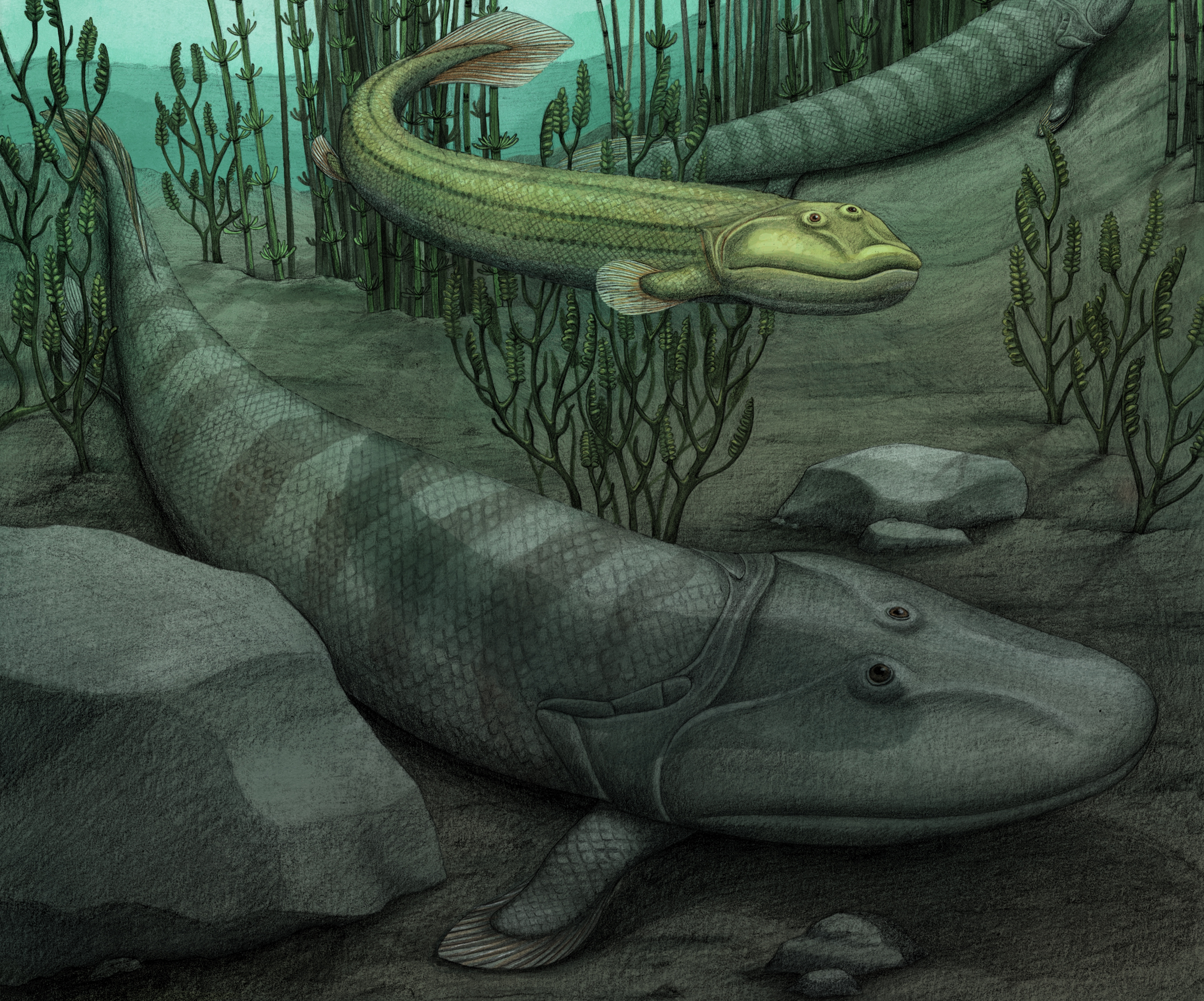The Ancient Fish That Got Cold Feet and Returned to Water
An analysis of fossil remains reveals a species of ancient “fishapod” that transitioned to land only to return to the water.
By Sam WaltersJul 20, 2022 10:00 AM

Illustration of Qikiqtania wakei in the water with its larger cousin, Tiktaalik roseae. (Credit: Alex Boersma/Nature)
Life on land isn’t for everyone. Approximately 375 million years ago, the famous “fishapod” Tiktaalik roseae first emerged from the water and explored the shore. At the same time, one of the species’ older relatives attempted a similar transition, only to turn tail and return to its former aquatic lifestyle.
This finding, recently reported in Nature, further clarifies the complicated transformation of fish into four-legged, land-living tetrapods and emphasizes that evolution isn’t always a linear process.
Sea-to-Land, Land-to-Sea
The finding of the fossilized remains of Tiktaalik in 2004 marked one of the most important moments in paleontology, inspiring a flux of investigations into the evolution of fins into limbs many millions of years ago. Now, a team of paleontologists studying fossils from the same archeological site that yielded Tiktaalik have identified a new species of “fishapod” similar to the first, this time with features well suited to swimming. These features, the paleontologists say, suggest that the species’ ventures onto land were somewhat short lived.
The discovery of the species, which the team has named Qikiqtania wakei, helps explain the early evolution of tetrapods. It also stresses that evolution is not a single, straight progression, but a winding path, filled with twists, turns and detours that don’t always show adaptive successes.
More:
https://www.discovermagazine.com/the-sciences/the-ancient-fish-that-got-cold-feet-and-returned-to-water

